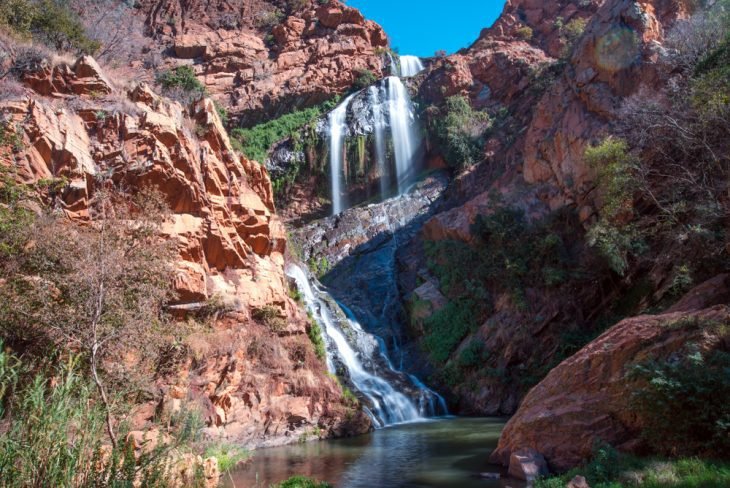Not known Facts About Johannesburg North Attractions
Not known Facts About Johannesburg North Attractions
Blog Article
See This Report on Johannesburg North Attractions
Table of ContentsAll about Johannesburg North AttractionsLittle Known Facts About Johannesburg North Attractions.Johannesburg North Attractions - The FactsFascination About Johannesburg North AttractionsFacts About Johannesburg North Attractions RevealedA Biased View of Johannesburg North AttractionsA Biased View of Johannesburg North Attractions
You should maintain safety in mind and visitors must continue to be alert at all times when in strange surroundings. Talk to the locals when you are in community to discover the area you are staying in. Johannesburg North attractions. When on the road (this doesn't use to mall and various other protected environments) ideal general advice is to try your ideal to look like a local and to stay clear of showing any kind of type of wide range
An Unbiased View of Johannesburg North Attractions
Teacher Revil Mason O. J. (Thomson, 1946) checked out the Witwatersrand's pre-colonial background. His historical work took off the 'em pty land' myth, according to which the region was empty of human habitation before the arrival of European inhabitants. In his magazines Prehistory of the Transvaal: A Record of Human Task (1962) and Beginnings of Black People of Johannesburg and the Southern Western Central Transvaal Advertisement 3501880 (1986 ), Professor Mason demonstrated the degree of social and financial development in the location before Europeans established foot here.

3 Easy Facts About Johannesburg North Attractions Described
In 1878, David Wardrop discovered gold in quartz veins at Zwartkop, north of Krugersdorp. In 1881, Stephanus Minnaar came across gold on the farm Kromdraai, near the Cradle of Humankind.
In March 1886, a protrusion (quickly to be called the Main Coral reef) was located, quite luckily, on Gerhardus Oosthuizen's ranch Langlaagte. Some state that the Lancastrian coal miner George Pedestrian found this reef. One more itinerant English miner, George Harrison (who had actually previously operated in Australian mines) acquired a prospecting licence in regard of Langlaagte in Might 1886.
He determined to carry on in a quest for greener pastures, and disposed of his Langlaagte insurance claim for the princely sum of 10. Alas: under lay the richest goldfield ever before discovered. The discovery of this rich auriferous coral reef provoked a gold thrill that indicated completion of agrarian tranquillity in the southerly Transvaal.
It would, within six years, end up being the largest town in southerly Africa. Within a years, it would make the Z. A. R. until then an anarchical and insolvent little state the wealthiest nation in Africa. By the turn of the century, the Z. A. R. was to exceed Russia, Australia and the United States of America to become the world's leading gold producer, generating more than a quarter of the world's gold.
More About Johannesburg North Attractions
It was referred to as Ferreira's Camp, called after Colonel Ignatius Ferreira. He was a Boer adventurer upon whom the British authorities Full Article had bestowed the condition of Buddy of one of the most Identified Order of St Michael and St George (entitling him to the post-nominal letters C. M. G.) in appreciation for his duty in the battle that had actually deposed the Pedi king Sekhukhune in 1879.
Two various other camps were developed: Meyer's Camp on the farm Doornfontein, and Paarl Camp. The latter was nicknamed Afrikander Camp; several people from the Cape Colony resolved there.

The Facts About Johannesburg North Attractions Revealed
This name acquired currency by word of mouth, such that the State click to read more Assistant attested the name to the Mining Commissioner on 9 October 1886. Stands in the town were auctioned on 8 December 1886. While some stands were sold for 10, others were torn down for as little as sixpence.
2 years later on, these erven were to alter hands for as long as 750 each. The tented camps decreased as a dorp of corrugated iron buildings created and increased north of the mines located along the Main Coral Reef Road. Locations such as Jeppe's Town (where working-class immigrants erected their houses) and Doornfontein (where the wealthy brand-new 'Randlords' started to build their opulent homes) were soon contributed to the ever-expanding map of the community.
All about Johannesburg North Attractions
Aside from the street names, there were no indicators of Johannesburg being positioned in a Dutch-speaking nation. Several years later, C. W. Kearns O. J. (one of the first kids signed up at St John's University in 1898) would certainly remember: 'A strange reality regarding Johannesburg was that, although it remained in the [Boer Republic], virtually everyone spoke English and also the Government servants attended to one in English, unless they were first resolved in the Taal (or Reduced Dutch)'.
Britain had an interest in guaranteeing optimum conditions for gold manufacturing on the Witwatersrand, and that the gold was exported to London instead than Berlin a necessary provided all the a lot more clamant by the Z. A. R.'s raising toenadering with Germany. Mine owners got on a clash with Head of state Kruger, whose plan of monopolistic giving ins view it now (often approved to his cronies) protected against mining business from acquiring materials of products (especially dynamite) and work by themselves, cheaper terms
Rumored Buzz on Johannesburg North Attractions
In 1890, the Volksraad had limited the franchise to white males who had actually lived in the Z. A. R. for fourteen years or longer, therefore disqualifying most of the immigrants (who happened to be the major contributors to the fiscus). Nevertheless, frustration for the vote was a plain pretense for promoting a various agenda; many uitlanders concerned themselves as short-term visitors and had no intent of staying in the Z.
Report this page